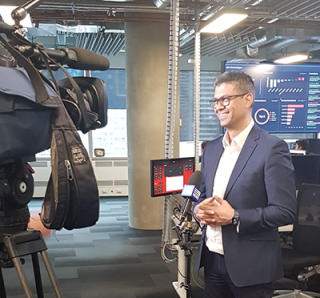A new discussion paper from the Australian Academy of Science and The University of Western Australia’s Minderoo Tech & Policy Lab has found the growth in personal and sensitive information collected from professional athletes over the past decade has outpaced the scientifically proven benefit to players.
According to the paper, by a 12-person Expert Working Group, the number of parties interested in athlete information – especially commercial parties – has dramatically shifted the risk versus reward ratio against the athletes.
Tech Director of the UWA Minderoo Tech & Policy Lab Jacqueline Alderson, a leading biomechanist and international expert in the use of data and technology in sport and health, led the paper’s scientific review.
“There are significant limitations to what technology can measure and infer about athletes,” Associate Professor Alderson said.
“Remote tracking and wearables offer insights into gross player movement and effort metrics, but we are still some distance from that technology providing robust performance improvement and injury prevention.”
Personal and sensitive information collected from sportspeople, on and off the field, ranges from sensor and video-based monitoring of athlete’s bodies during competition and training to the intimacies of mental health, sleep quality, food intake and menstruation.
The discussion paper aims to mobilise a national conversation to identify gaps and potential risks in sports data governance across the major football codes, basketball, netball and cricket in Australia.
The Expert Working Group was co-chaired by UWA Associate Professor of Law and Technology Julia Powles, who said that a key finding of the project is the alarming distance between how sports currently manage athlete information and existing legal requirements.
“Athlete data collection is almost completely unregulated, leaving it open to serious risks including privacy and security breaches, commercial exploitation, and misuse that impacts on careers and livelihoods,” Associate Professor Powles said.
“This is all the more startling when assessed against the minimal gains this powder keg of data delivers, in terms of improving player performance, development and wellbeing.”
The paper identifies that Australia has a historic opportunity to set forward-looking practices for sports data governance, including legal, organisational and ethical limits around athlete data collection and use.
Read the discussion paper here: science.org.au/datainsport








